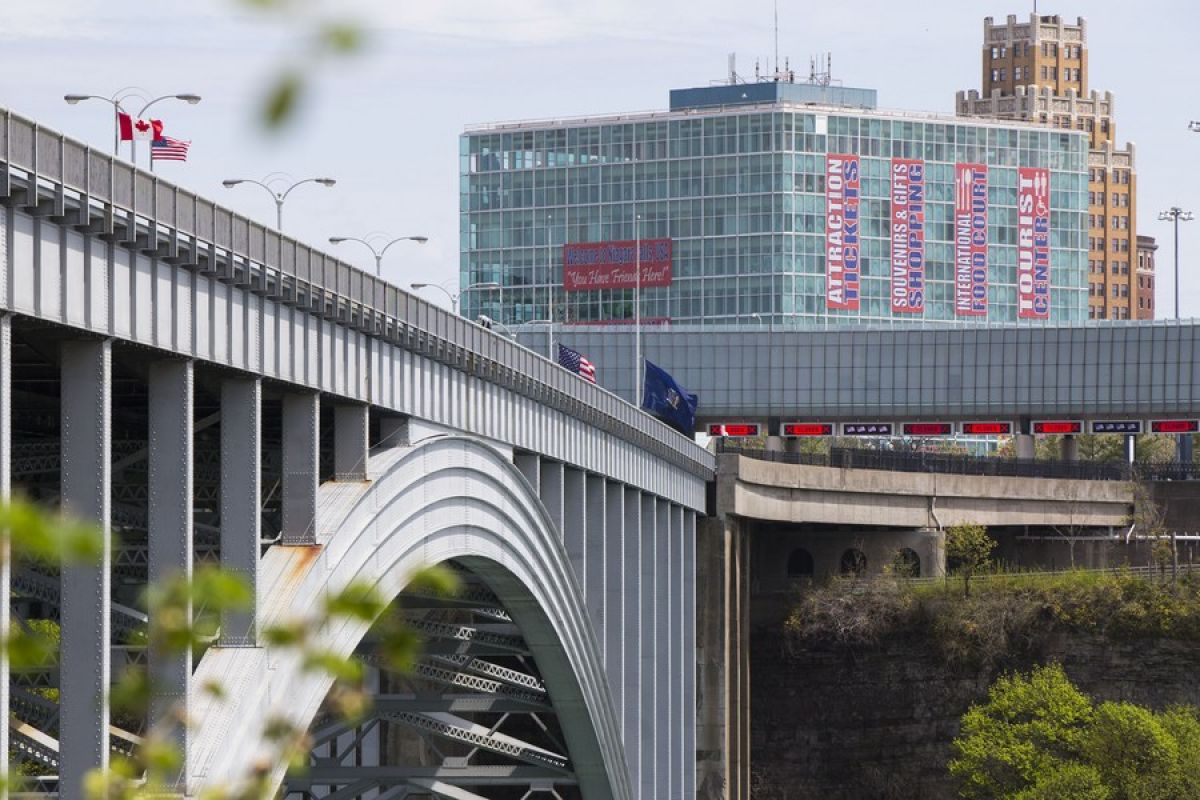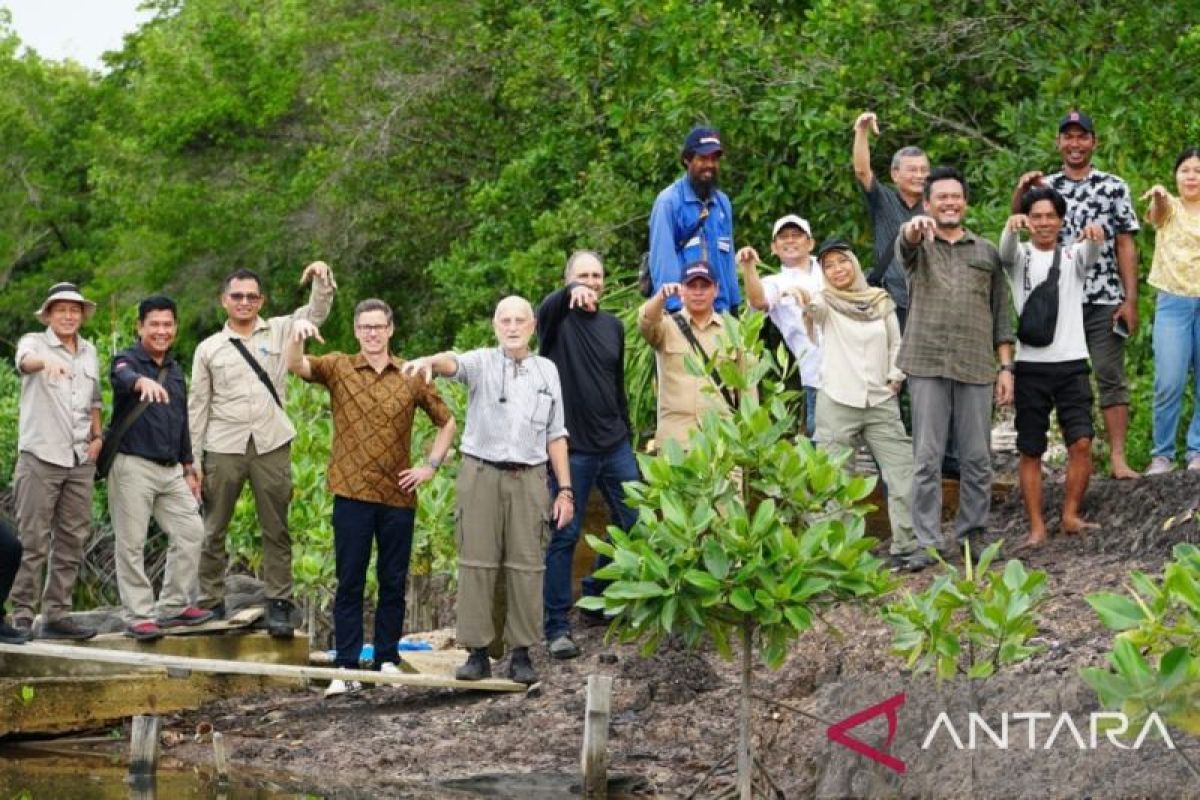ST. JOHNSBURY, Vt. (AP) — The immigration deal announced Friday by U.S. President Joe Biden and Canadian Prime Minister Justin Trudeau aims to end a process that has allowed tens of thousands of immigrants from around the world to move between the two countries along a reverse path. route between New York State and Quebec.
Since the start of 2017, so many migrants have entered Canada via Roxham Road, outside Champlain, New York, that the Royal Canadian Mounted Police staffed a reception center to process them, at less than eight kilometers from the official border post where they would be returned. in the USA. Police warned they would be arrested, but once on Canadian soil, they were allowed to stay and pursue asylum cases that could take years to resolve.
The new policy states that any asylum seeker who does not have U.S. or Canadian citizenship and who is arrested within 14 days of crossing will be sent back across the border. The agreement was expected to take effect one minute after midnight on Saturday, a rapid implementation aimed at avoiding a wave of asylum seekers trying to cross the border, according to Canadian officials who spoke on the condition of anonymity to discuss agreement in advance.
“We are expanding the Safe Third Country Agreement to apply not only to designated points of entry, but also to the entire land border, including internal waterways, ensuring fair and more orderly migration between our two countries,” said Canada’s statement.
Canada also agreed to allow 15,000 migrants to apply “on a humanitarian basis from the Western Hemisphere during the year, with access to economic opportunities to address forced displacement, as an alternative to irregular migration “.
WATCH: Biden speaks on Syria airstrike in joint news conference with Canadian Prime Minister Trudeau
Among the latest migrants to make it through were about eight people split into two families – one from Haiti, the other from Afghanistan – who arrived at the US end of Roxham Road just after dawn Friday. Both said they took circuitous routes to get there.
Gerson Solay, 28, carried his daughter Bianca to the border. He said he did not have the necessary documents to stay in the United States.
“That’s why Canada is my last destination,” he said before being arrested for processing.
The deal comes as the U.S. Border Patrol also responds to a sharp increase in illegal southbound crossings along Canada’s major border. Almost everything takes place in northern New York and Vermont, along the border closest to Canada’s two largest cities, Toronto and Montreal.
It’s unclear exactly how Roxham Road became a favored route, but it’s just a taxi ride from where Interstate 87 approaches the Canadian border, and for migrants heading to the south, the distance to New York is relatively short.
Although the numbers are still minimal compared to the U.S.-Mexico border, it is happening so frequently now that the Border Patrol has increased its staffing in the area and has begun releasing some migrants to Vermont with a later date to appear before immigration authorities.
Canadian authorities have struggled to deal with the situation since early 2017. Many northbound migrants said they were fleeing because they feared President Donald Trump’s immigration policies would be hostile to their presence in the United States. The process has continued since the Biden administration took office.
These migrants took advantage of a quirk of a 2002 agreement between the United States and Canada that stipulates that asylum seekers must apply for asylum in the first country they arrive in. Migrants who went to an official Canadian border crossing were sent back to the United States and invited to apply there. But those who reach Canadian soil somewhere other than a port of entry are allowed to stay and seek protection.
WATCH: Biden, Trudeau celebrate ‘inseparable’ US-Canada relationship in speeches to Parliament
The deal was immediately criticized by some who said it could endanger the safety of asylum seekers by preventing them from getting needed support from both governments.
“Given the attacks on access to legal protection for the most vulnerable migrants arriving at our borders, it is questionable whether the United States is still considered a ‘safe third country,'” said Danilo Zak, Director policy and advocacy associate at the humanitarian group. CWS, also known as Church World Services. The organization has worked for decades on behalf of people around the world who have been forced to leave their homes.
“We urge President Biden to strongly reconsider this agreement and work with Congress to restore access to asylum and support policies that recognize the dignity of all who arrive at our borders,” Zak said in a statement .
Meanwhile, southbound migrants are straining U.S. border officials.
U.S. Border Patrol agents stopped migrants entering illegally from Canada 628 times in February, more than five times the same period a year earlier. These numbers pale in comparison to migrants arriving from Mexico – where they were stopped more than 220,000 times in December alone – but it is still a considerable change in percentage terms.
In the Border Patrol’s Swanton sector, which spans New Hampshire, Vermont and part of upstate New York, agents arrested migrants 418 times in February, more than 10 times per year. compared to the previous year. About half of Canada’s arrivals are Mexicans, who can travel visa-free to Canada from Mexico.
About an hour south of the border, the police chief in St. Johnsbury, Vermont, population 6,000, alerted state authorities that the Border Patrol had dropped off a van of immigrants with only a few minutes’ notice at the community reception center. The same thing has happened several times before over the past few weeks.
In a statement, U.S. Customs and Border Protection said the migrants were dropped off in St. Petersburg. Johnsbury had been apprehended along the border after entering the United States without authorization and received a summons for further immigration proceedings.
They were dropped off in St. Johnsbury because it has a train station where migrants can take a bus to a larger city.
“In such circumstances, USBP works in tandem with local communities to ensure the safety of all parties – both community members and migrants – and to ensure the stability of community resources,” it says. the press release.
But local officials said they had no time to prepare. State officials are now working to establish a system to provide migrants with services they may need.
On Thursday, a Haitian couple and their children, boys aged 17 and 9 and a 15-year-old girl, were dropped off at the reception center. The family, who did not want to give their names, wanted to take a bus to Miami.
They said they had been in Canada for two months, but would not talk about what prompted them to keep moving.
They missed the Thursday bus that would allow them to take a bus to Boston, where they could take another bus to Miami. A team of local volunteers spent the day bringing them food, finding a place for them to spend the night and getting them on the bus on Friday.
Police Chief Tim Page said St. Johnsbury wants to help these migrants, but not on the fly.
“We need to write something about what we’re going to do when these families arrive,” he said. “We don’t have a defined system yet, so when we do, I’m sure everything will go a little smoother.”
Associated Press contributors include Rob Gillies in Ottawa, Ontario.

“Typical zombieaholic. General twitter fanatic. Food fanatic. Gamer. Unapologetic analyst.”







